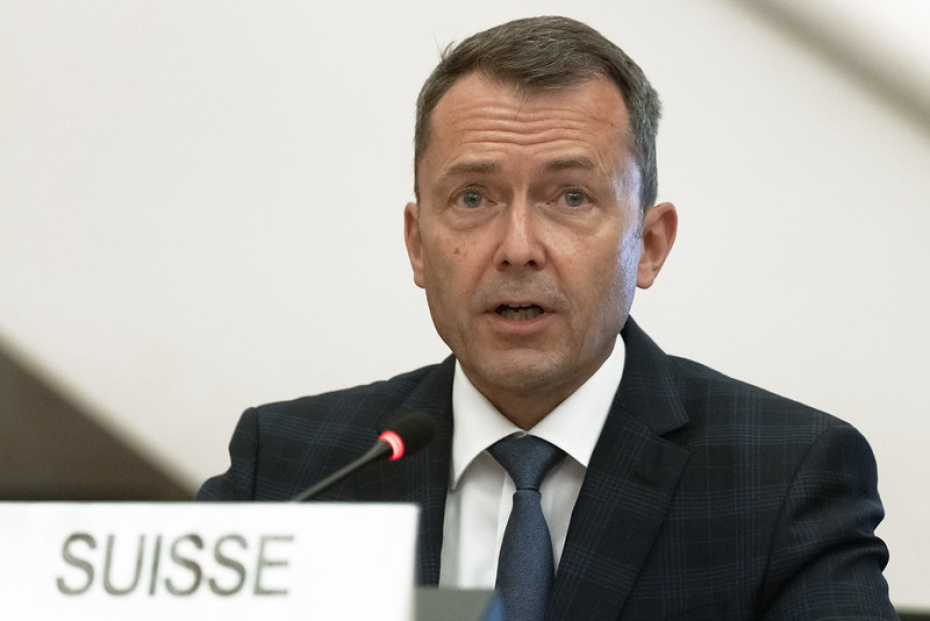Breadcrumb

Multilateralism more important than ever, says Switzerland on its 20th anniversary of joining the United Nations

Twenty years ago, on March 3, 2002, the Swiss people voted 58% in favour of joining the United Nations, which officially happened on September 10 the same year. Since then, Switzerland has asserted its position within the Organization, both as a member State and as the host country of the United Nations’ European headquarters.
In an interview with ONU Info Genève, Switzerland's Permanent Representative to the United Nations in Geneva, Ambassador Jürg Lauber, reflected on the achievements of the past two decades. He discussed the challenges ahead in terms of international cooperation, particularly as the war in Ukraine unfolds.
Nothing can replace diplomacy
The Ukrainian conflict has caused diplomatic tensions, Ambassador Lauber noted. The Russian Federation's attack on Ukraine was a "violation of human rights" that directly affected the values of the international organization, he said, adding that the present time was “a particularly serious moment for multilateralism”.
While global support to the civilians and the work of humanitarian agencies on the ground remains important, nothing can replace diplomacy, he said.
"The multilateral system is an indispensable meeting platform" for countries to exchange views, he said, even in times of violent conflict. "We need to move toward a future with more cooperation between nations," he said, noting that Switzerland celebrates 20 years as a member State of the United Nations this year.
According to Ambassador Lauber, the country's membership was the result of the pragmatism of the Swiss people, who considered the organization’s role essential, particularly after the end of the Cold War. That position remains constant, according to a survey of the Swiss Federal Institute of Technology Zurich (ETHZ) in 2019: 59% of Swiss remain in favour of their country's active contribution to United Nations affairs.
For the Ambassador, that position is a result of a good match between Swiss values and the values of the United Nations Charter. "We are indeed supporting peace, sustainable development and humanitarian aid," he said.
Active participation, yet neutral
According to the Ambassador, Switzerland stands out at the United Nations for its neutrality, which is based on the choice not to support any party to an armed conflict, and to deal with each nation on an equal footing.
"This principle of universality gives us a special position and enables us to talk to everyone," said Mr. Lauber. He also pointed out that the policy is "bridge-building," as illustrated by the meeting between Presidents Joe Biden and Vladimir Putin in Geneva last June.
Regarding neutrality, the Ambassador defended Switzerland's candidacy for a non-permanent seat in the Security Council, explaining that the country wanted to be fully involved in the United Nations’ work as a member State.
"We have been a member of the Human Rights Council and the Economic and Social Council; after 20 years, it is time to be a member of the Security Council. I am convinced that we have something to contribute to the work of that body," he said.
Having contributed to the creation of the Human Rights Council in 2006 and supported the negotiations and implementation of the 2030 Agenda on Sustainable Development, Mr. Lauber said multilateralism was more essential than ever to jointly tackle the challenges of the 21st century, such as the COVID-19 pandemic, climate change, migration, and inequality, among others.
"There is no alternative to multilateralism. These are all cross-border challenges, and each country, each region must contribute to finding solutions. We must rely on international cooperation," he said.
Listen to Ambassador Lauber's full interview with ONU Info Genève (in French).
